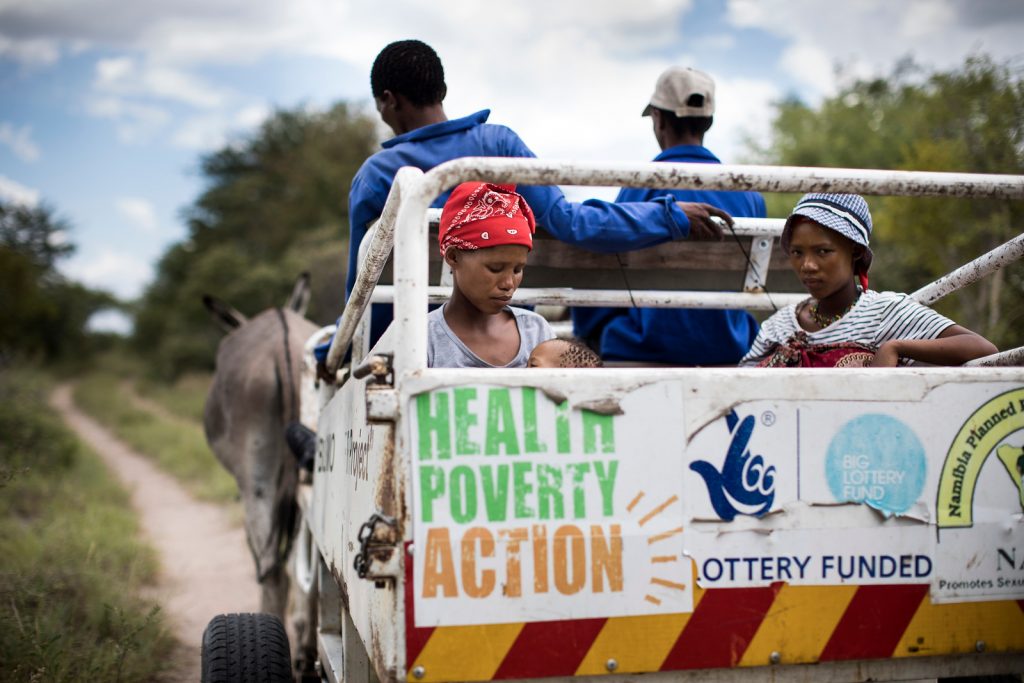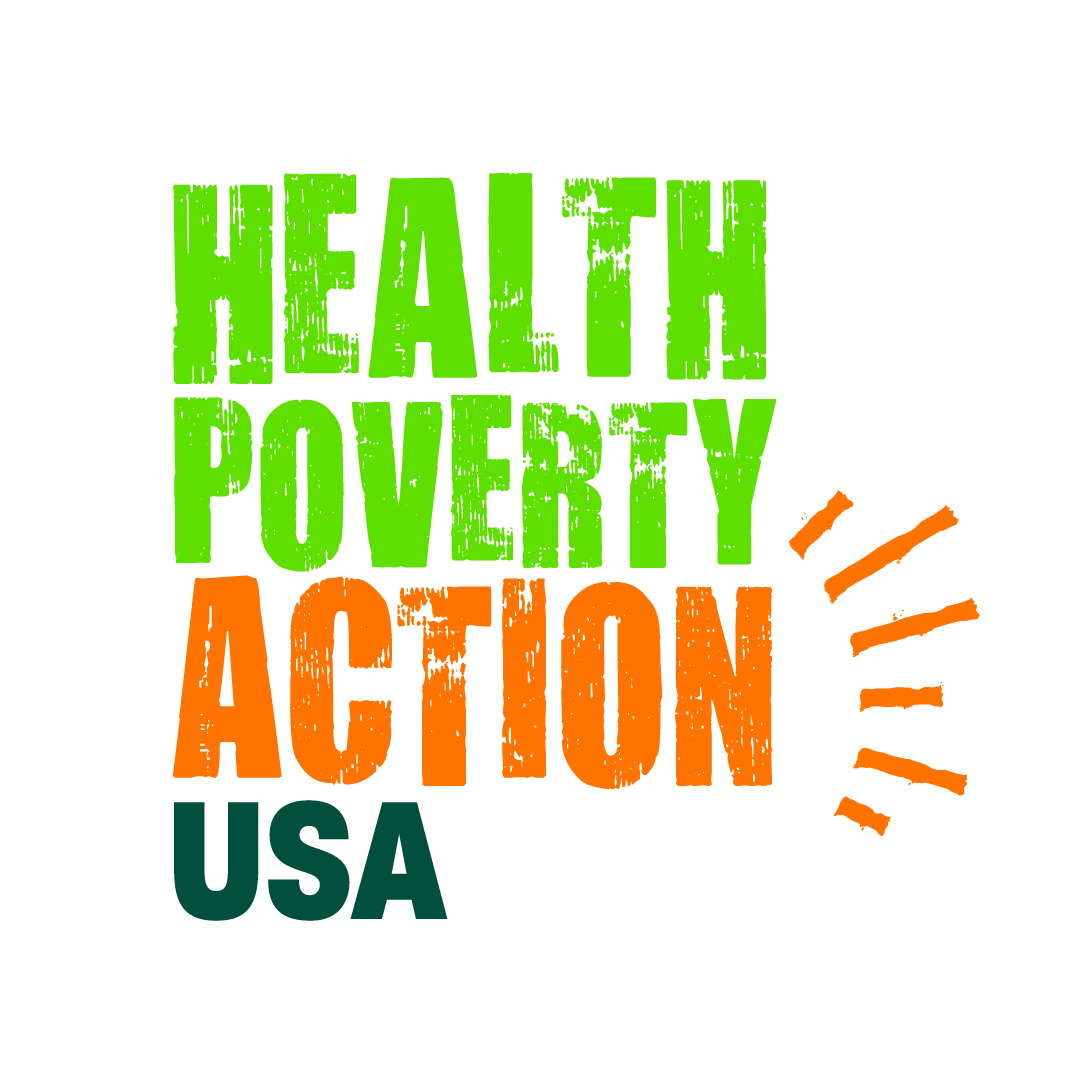Five months pregnant with her second child, Xao lives in the remote region of Tsumkwe, Namibia. Xao is a member of the San tribe – nomadic hunter gatherers who often live in remote, rural villages. Historically the San have been discriminated against and denied basic health and education rights. Even today, the huge distances mean that accessing healthcare remains a constant struggle – the region has only one doctor and one ambulance to cover hundreds of miles and 13,000 people.
Sometimes people are scared to come, or they don’t know that they can come here. It can take many days to walk to the clinic and then sometimes it is too late. With my first child I delivered on the side of the road on my way to the clinic.

Xao (left) uses a donkey cart ambulance to reach the health centre. Donkey cart ambulances are often the only transportation that can navigate through the difficult terrain in Tsumkwe.
Health Poverty Action is working with the San community to help them to overcome some of these difficulties in reaching healthcare. We have provided donkey cart ambulances to remote communities in Tsumkwe to help them navigate the difficult bush terrain. Xao is now able to use this donkey cart ambulance to reach the health centre much more quickly than she could on foot.
It is very important to come so that the nurses can look at my baby, and make sure they are healthy. Now more and more people know that it is important to come to the clinic for checkups and delivery. I learnt a lot about the dangers of pregnancy as well the importance of condoms and family planning so that I do not have too many children. Now I feel very happy and safe.

